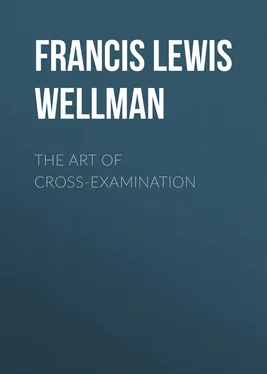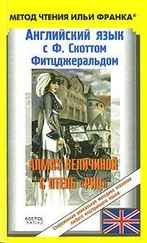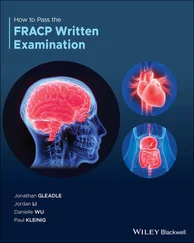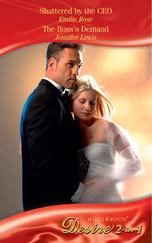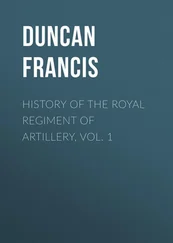Francis Lewis Wellman - The Art of Cross-Examination
Здесь есть возможность читать онлайн «Francis Lewis Wellman - The Art of Cross-Examination» — ознакомительный отрывок электронной книги совершенно бесплатно, а после прочтения отрывка купить полную версию. В некоторых случаях можно слушать аудио, скачать через торрент в формате fb2 и присутствует краткое содержание. Жанр: foreign_edu, Юриспруденция, на английском языке. Описание произведения, (предисловие) а так же отзывы посетителей доступны на портале библиотеки ЛибКат.
- Название:The Art of Cross-Examination
- Автор:
- Жанр:
- Год:неизвестен
- ISBN:нет данных
- Рейтинг книги:3 / 5. Голосов: 1
-
Избранное:Добавить в избранное
- Отзывы:
-
Ваша оценка:
- 60
- 1
- 2
- 3
- 4
- 5
The Art of Cross-Examination: краткое содержание, описание и аннотация
Предлагаем к чтению аннотацию, описание, краткое содержание или предисловие (зависит от того, что написал сам автор книги «The Art of Cross-Examination»). Если вы не нашли необходимую информацию о книге — напишите в комментариях, мы постараемся отыскать её.
The Art of Cross-Examination — читать онлайн ознакомительный отрывок
Ниже представлен текст книги, разбитый по страницам. Система сохранения места последней прочитанной страницы, позволяет с удобством читать онлайн бесплатно книгу «The Art of Cross-Examination», без необходимости каждый раз заново искать на чём Вы остановились. Поставьте закладку, и сможете в любой момент перейти на страницу, на которой закончили чтение.
Интервал:
Закладка:
A few lawyers have gone so far as to refuse direct communication with clients excepting as they come represented by their own attorneys. It is pleasing to note that some of our leading advocates who, having been called away from large and active law practice to enter the government service, have expressed their intention, when they resume the practice of the law, to refuse all cases where clients are not already represented by competent attorneys, recognizing, at least in their own practice, the English distinction between the barrister and solicitor. We are thus beginning to appreciate in this country what the English courts have so long recognized: that the only way to insure speedy and intelligently conducted litigations is to inaugurate a custom of confining court practice to a comparatively limited number of trained trial lawyers.
The distinction between general practitioners and specialists is already established in the medical profession and largely accepted by the public. Who would think nowadays of submitting himself to a serious operation at the hands of his family physician, instead of calling in an experienced surgeon to handle the knife? And yet the family physician may have once been competent to play the part of surgeon, and doubtless has had, years ago, his quota of hospital experience. But he so infrequently enters the domain of surgery that he shrinks from undertaking it, except under circumstances where there is no alternative. There should be a similar distinction in the legal profession. The family lawyer may have once been competent to conduct the litigation; but he is out of practice—he is not "in training" for the competition.
There is no short cut, no royal road to proficiency, in the art of advocacy. It is experience, and one might almost say experience alone, that brings success. I am not speaking of that small minority of men in all walks of life who have been touched by the magic wand of genius, but of men of average endowments and even special aptitude for the calling of advocacy; with them it is a race of experience. The experienced advocate can look back upon those less advanced in years or experience, and rest content in the thought that they are just so many cases behind him; that if he keeps on, with equal opportunities in court, they can never overtake him. Some day the public will recognize this fact. But at present, what does the ordinary litigant know of the advantages of having counsel to conduct his case who is "at home" in the court room, and perhaps even acquainted with the very panel of jurors before whom his case is to be heard, through having already tried one or more cases for other clients before the same men? How little can the ordinary business man realize the value to himself of having a lawyer who understands the habits of thought and of looking at evidence—the bent of mind—of the very judge who is to preside at the trial of his case. Not that our judges are not eminently fair-minded in the conduct of trials; but they are men for all that, oftentimes very human men; and the trial lawyer who knows his judge, starts with an advantage that the inexperienced practitioner little appreciates. How much, too, does experience count in the selection of the jury itself—one of the "fine arts" of the advocate! These are but a few of the many similar advantages one might enumerate, were they not apart from the subject we are now concerned with—the skill of the advocate in conducting the trial itself, once the jury has been chosen.
When the public realizes that a good trial lawyer is the outcome, one might say of generations of witnesses, when clients fully appreciate the dangers they run in intrusting their litigations to so-called "office lawyers" with little or no experience in court, they will insist upon their briefs being intrusted to those who make a specialty of court practice, advised and assisted, if you will, by their own private attorneys. One of the chief disadvantages of our present system will be suddenly swept away; the court calendars will be cleared by speedily conducted trials; issues will be tried within a reasonable time after they are framed; the commercial cases, now disadvantageously settled out of court or abandoned altogether, will return to our courts to the satisfaction both of the legal profession and of the business community at large; causes will be more skilfully tried—the art of cross-examination more thoroughly understood.
CHAPTER II
THE MANNER OF CROSS-EXAMINATION
It needs but the simple statement of the nature of cross-examination to demonstrate its indispensable character in all trials of questions of fact. No cause reaches the stage of litigation unless there are two sides to it. If the witnesses on one side deny or qualify the statements made by those on the other, which side is telling the truth? Not necessarily which side is offering perjured testimony,—there is far less intentional perjury in the courts than the inexperienced would believe,—but which side is honestly mistaken?—for, on the other hand, evidence itself is far less trustworthy than the public usually realizes. The opinions of which side are warped by prejudice or blinded by ignorance? Which side has had the power or opportunity of correct observation? How shall we tell, how make it apparent to a jury of disinterested men who are to decide between the litigants? Obviously, by the means of cross-examination.
If all witnesses had the honesty and intelligence to come forward and scrupulously follow the letter as well as the spirit of the oath, "to tell the truth, the whole truth, and nothing but the truth," and if all advocates on either side had the necessary experience, combined with honesty and intelligence, and were similarly sworn to develop the whole truth and nothing but the truth, of course there would be no occasion for cross-examination, and the occupation of the cross-examiner would be gone. But as yet no substitute has ever been found for cross-examination as a means of separating truth from falsehood, and of reducing exaggerated statements to their true dimensions.
The system is as old as the history of nations. Indeed, to this day, the account given by Plato of Socrates's cross-examination of his accuser, Miletus, while defending himself against the capital charge of corrupting the youth of Athens, may be quoted as a masterpiece in the art of cross-questioning.
Cross-examination is generally considered to be the most difficult branch of the multifarious duties of the advocate. Success in the art, as some one has said, comes more often to the happy possessor of a genius for it. Great lawyers have often failed lamentably in it, while marvellous success has crowned the efforts of those who might otherwise have been regarded as of a mediocre grade in the profession. Yet personal experience and the emulation of others trained in the art, are the surest means of obtaining proficiency in this all-important prerequisite of a competent trial lawyer.
It requires the greatest ingenuity; a habit of logical thought; clearness of perception in general; infinite patience and self-control; power to read men's minds intuitively, to judge of their characters by their faces, to appreciate their motives; ability to act with force and precision; a masterful knowledge of the subject-matter itself; an extreme caution; and, above all, the instinct to discover the weak point in the witness under examination.
One has to deal with a prodigious variety of witnesses testifying under an infinite number of differing circumstances. It involves all shades and complexions of human morals, human passions, and human intelligence. It is a mental duel between counsel and witness.
In discussing the methods to employ when cross-examining a witness, let us imagine ourselves at work in the trial of a cause, and at the close of the direct examination of a witness called by our adversary. The first inquiry would naturally be, Has the witness testified to anything that is material against us? Has his testimony injured our side of the case? Has he made an impression with the jury against us? Is it necessary for us to cross-examine him at all?
Читать дальшеИнтервал:
Закладка:
Похожие книги на «The Art of Cross-Examination»
Представляем Вашему вниманию похожие книги на «The Art of Cross-Examination» списком для выбора. Мы отобрали схожую по названию и смыслу литературу в надежде предоставить читателям больше вариантов отыскать новые, интересные, ещё непрочитанные произведения.
Обсуждение, отзывы о книге «The Art of Cross-Examination» и просто собственные мнения читателей. Оставьте ваши комментарии, напишите, что Вы думаете о произведении, его смысле или главных героях. Укажите что конкретно понравилось, а что нет, и почему Вы так считаете.
